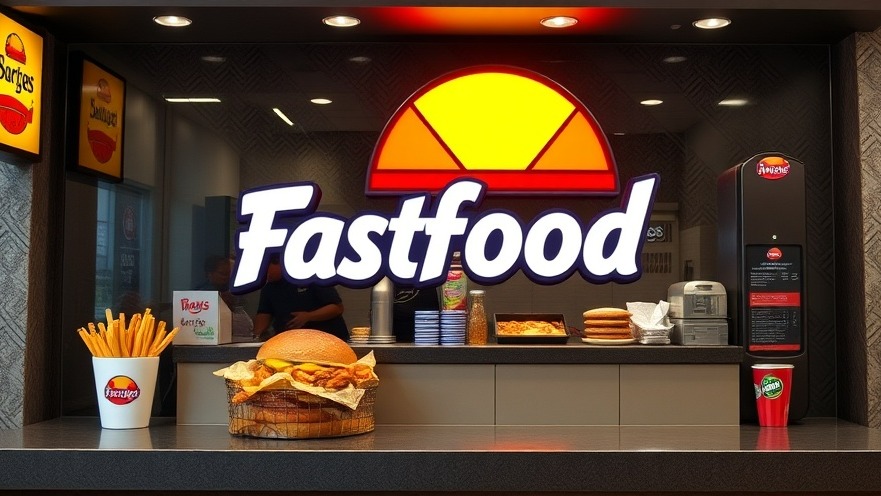
Understanding the Tariff Impacts on Fast-Food Brands
The landscape of fast-food franchises is facing substantial challenges as tariffs imposed by the Trump administration ripple through the economy. While both McDonald’s and Yum! Brands have seen their stock values decline, the broader implications of these tariffs extend beyond simple price increases for ingredients. An alarming shift in consumer behavior and foreign backlash is also coming into play. With economists predicting a significant likelihood of a recession, the fast-food industry's ability to adapt will be critical.
Consumer Behavior Shifts During Economic Downturns
As history illustrates, economic uncertainty leads to reduced consumer spending. Past recessions demonstrate that households prioritize essential expenses over dining out, opting instead to prepare meals at home. This trend of frugality has a profound impact on fast-food franchises, which may see decreased foot traffic as customers tighten their belts. Understanding this shift is paramount for franchisors aiming to maintain brand consistency and drive operations effectively.
The Role of Foreign Relations in Fast-Food Sales
The geopolitical environment also contributes significantly to the viability of fast-food brands on an international scale. Increased anti-American sentiment due to tariffs could lead to foreign boycotts, ultimately reducing overall sales. According to Goldman Sachs, such boycotts might cut the U.S. GDP by as much as $83 billion. For franchisors looking to enhance franchisee performance globally, the challenge lies not only in local market conditions but also in navigating the complex network of international relations.
Anticipating Challenges with Expansion Efforts
With fast-food entities such as Taco Bell and KFC planning aggressive growth strategies internationally, management must consider how these tariffs and backlash may stall approvals for new locations. The potential for increased scrutiny and delays in regulatory processes could impede expansion efforts significantly. As analysts like Peter Saleh caution, fast-food brands risk facing both tangible economic setbacks and reputational damage that could hinder their ability to thrive abroad.
Optimizing Operational Efficiency Amidst Uncertainty
For franchisors, navigating these turbulent times calls for an emphasis on operational excellence. Streamlining supply chains, exploring alternative sourcing strategies, and leveraging technological advancements can mitigate some of the negative impacts stemming from tariffs. Brands that adopt a proactive approach to recalibrating their operational model may better withstand the pressures of rising costs and declining consumer confidence.
Conclusion: Reacting to Economic Signals
The current environment requires fast-food franchisors to be agile in their strategies. Recognizing the interconnectedness of domestic and international markets and the potential psychological effects on consumers will help navigate the coming challenges. It’s crucial to monitor economic indicators, adapt business models accordingly, and prepare for shifts in public perception to ensure franchisees continue to perform and thrive.
 Add Row
Add Row  Add
Add 




Write A Comment